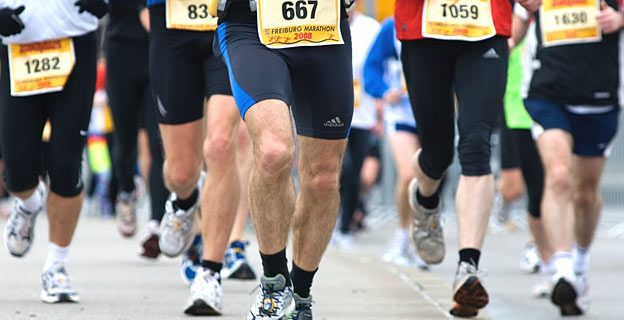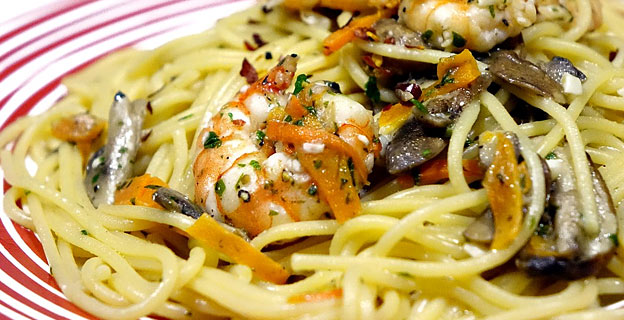Regenerating a Runner: Aah, running. The wind blows in your hair, your feet hit the pavement, and your arms find a rhythm to your pace. Wonderful, isn’t it? But then suddenly, the finish line seems to disappear into the distance – your stamina starts to deplete, your muscle begins to fatigue, and you slow to a panting stop.
What happened? Partly, your diet could be to blame.
Training your butt off can surely improve your endurance, but let’s not neglect what you put into your body. A lack of calories and/or unbalanced nutrition can exhaust you and leave you gasping for air like a winded dog.
Here’s a great 2-minute video about how to follow a runner’s diet:
So what exactly should a runner’s diet look like?
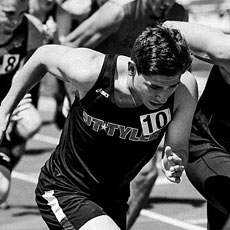
The very first thing you must consider is how many calories you’re burning off to begin with. Runner’s World has a useful calculator that you can use to get your total calorie expenditure.
Once you find that out, according to the New York Times, you’ve got to compensate those calories with runner-friendly food.
The Perfect Runner’s Diet
Your muscles can operate at the top of its game with two energy sources: complex carbohydrates and fats. Experts bicker about which one optimizes a runner’s experience, but really, both can work together to reap fulfilling results for anyone training for a marathon.
Need running shoes? We have new coupons for Fanatics and Finish Line!
Eat Carbs: “Runner’s Fuel”
Have you ever wondered how we even know carbs help runners reach their full potential? Well if you don’t mind a little history tidbit, back in 1967, Swedish researchers took muscle biopsies of athletes to test whether glycogen (the stored form of glucose) impels an athlete to run faster and farther.
Of course, the answer was a resounding yes. And ever since, the athletic world began hailing carbs as “runner’s fuel.”
When you chow down on spaghetti, for example, your body will convert those carbs into a form of sugar called glucose, which seeps into your bloodstream and stimulates your cells. Some of that glucose gets stored as glycogen. Now when you run, your body draws out energy from the sugars in your bloodstream first and then extracts energy from the storage (glycogen) when the glucose runs low.
That said, when you eat complex carbs before a run, your body says “Sweet! I’ve got me some immediate energy to get me going.”
Runners: Eat Complex Carbohydrates
All the hype around sports drinks isn’t just a marketing gimmick. They’re filled with “easy-to-digest carbohydrates,” according to the NYTimes, and give your body an immediate source of energy to send you flying. Experts suggest that 60 to 65 percent of runners’ calorie intake should include carbs, but of course, this shouldn’t be solely Gatorade.
Other places you can get your carbs:
- Whole grain cereal
- Dairy & yogurt (probiotics!)
- Bread
- Whole grain pasta
- Fat
Runners: Learn to Love Fat!
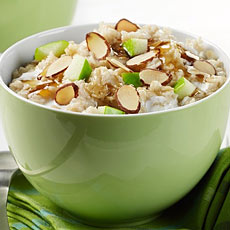
While the diet world typically clutches their pearls at the word “fat,” if you want to propel your running abilities to new heights, you’ve got to embrace fat!
Dietary fat, the other macronutrient used as an energy source, is broken down into fatty acids and other substances before your muscles can access it to power your run, which makes fat less readily available than carbs.
Stored fat, on the other hand, is an awesome fuel source because we all have so much of it – even the stick-thin runners. When you’re low on carbs, your body says “Oh no, I ran out of sugar. What do I do? Oh, wait, hallelujah! There’s whole storage of fat here to keep me going.”
That’s why stored fat is essential for long-distance runners because once all the carbs get depleted, you’re going to need it. Unlike carbs, it’s futile to have a high-fat meal before a run since it will take a while for your body to convert it to usable energy.
Where to Find (Good) Fat
When adding fat to your diet, make sure you eat a healthy balance of saturated, monounsaturated, and polyunsaturated fats.
- Coconut oil
- Chicken with the skin
- Eggs
- Polyunsaturated fat
- Monounsaturated Fat
- Salmon
- Tuna
- Almonds, Walnuts
- Sunflower seeds
- Avocados (In a hurry? Make avocados ripen faster!)
- Whole milk
- Olive oil
Runners: Don’t Forget Protein!
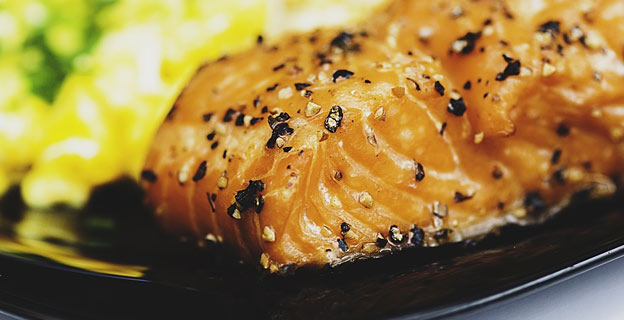
Now protein’s no energy source, but it can nurture your muscles. As you’re running and using the heck out of your muscles, that steak dinner is going to help you re-fortify your muscles to support your run.
Nutritional experts suggest female runners consume three ounces of meat per day while male runners should wolf down four to five ounces daily.
And finally, when choosing fruits and veggies, gravitate more towards foods with high anti-inflammatory properties like berries, kale, and peaches. (Harvard’s Healthy Eating Plate does a great job of breaking down a balanced diet.)
What about Running for Weight Loss?
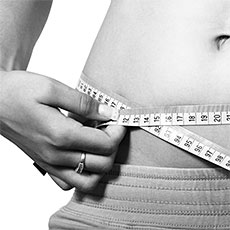
Running in moderation is a great complement to a healthy lifestyle, or as part of a weight-loss plan like WeightWatchers or Nutrisystem. (In fact, the latest list of top ranked diets lists the role of running or exercise in each)
However, keep in mind that you actually can gain weight by running, so experts don’t recommend it, especially if you’re new to jogging, and you’ll want to get clearance from your doctor, as running can put a lot of stress on your body.
Studies show that running often increases your appetite because your body is fighting to maintain some sort of weight homeostasis. There’s a name for it actually – “runger.”
In order to curb weight gain, you’ll have to find a way to ignore those “must eat now” signals and burn more calories than you consume.
So along with endurance-building training, if you can incorporate the right amount of fats, carbs, proteins, fruits, and veggies – plus have a good grasp of what to eat and when to eat it – burning out while you’re hitting the pavement should become an anomaly rather than the norm.
Written by Kimberly Gedeon
Photo credit: Pixabay.com

